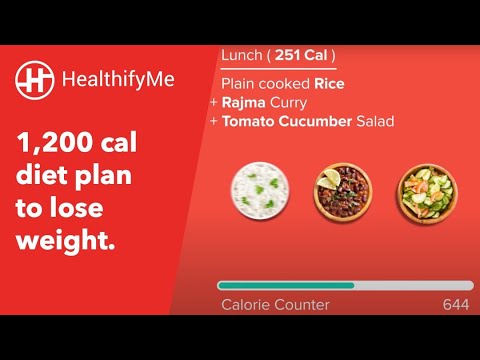
People who are overweight or obese will find the connection between exercise and weight loss beneficial. Regular exercise is important for long-term weight management. You should aim to get at least thirty minutes of physical activity each day if you want to lose weight or maintain a healthy weight. Increasing your physical activity will also boost your overall health, as is reducing sedentary time. Experts recommend that 150 minutes of moderate-intensity activity be done each week. If this is impossible, you might consider other activities, such as yoga, which can be great for weight loss.
Moderate intensity
Research shows that moderate-intensity exercise is able to increase a person’s sense of fullness, and decrease food intake in later stages of pregnancy. Researchers from Hopkins and Blundell JE investigated the effects exercise had on appetite control over the long and short term. Moderate intensity exercise can also improve mood, self-efficacy, and both are important factors in weight loss. However, if a person doesn't enjoy intense exercise, moderate-intensity exercise may help.
Scientists use a simple test for determining the intensity of moderate-intensity activity to determine its effectiveness. Participants are asked to speak for 10 minutes and then exhale deeply for 10 minutes. This is done in order to assess the intensity of their exercise. Moderate-intensity exercises are a great option to include physical activity into your daily life. They can be simple activities like walking 2 miles, biking 5 miles, or doing water aerobics for 30 minutes.

Cardiovascular
Regular cardio exercises increase your heart rate and lung capacity, both of which are essential for weight management. Cardio is an integral part of your exercise routine, no matter if you're an expert or a beginner bodybuilder. Cardio exercises include running (jogging), swimming, cycling, and any other activities that challenge your heart. The CDC recommends that cardio exercise should be done at least 30 mins each day. Cross-training, jumping, kickboxing and swimming are some other examples of cardio exercises.
A regular cardio workout boosts your immune system, decreasing the risk of disease and bacterial infection. It increases blood circulation, keeping your body strong and healthy. Lack of circulation can lead to stroke or heart attack. Cardio is good for burning calories, but it should be used in conjunction with strength-training to help you manage your weight. A good workout can make you more committed to your exercise routine.
Strength training
Strength training is essential for anyone who wants to lose weight and manage their weight. Strength training can help you burn calories and protect your joints. It also preserves independence as you age. Strength training can improve balance and lower your chance of falling. Strength training has many benefits, including the ability to reduce the symptoms and signs of chronic diseases. But what exactly is strength training?
Eating excess post-exercise oxygen consumption (EPOC), is a great way to burn calories. Strength training takes more energy than regular exercise. This means that there are more calories burned during and after the workout. Post-exercise is the most common name for strength training. Strength training can help you lose weight and increase your metabolism by up two hundred calories each time you do it.

Yoga
It can help with weight loss, among other benefits. It improves your flexibility and strength while at the same time building mental focus. Regular yoga practice can help with weight loss and maintaining a healthy lifestyle. It has been shown that regular yoga practice can reduce cortisol levels. This is known to be a major killer of fat-loss. You can also do cardio with yoga like Vinyasa Yoga or Ashtanga yoga.
If you're considering starting a yoga program, it is important to consult a professional. Your primary doctor might be an expert in integrative medical and can help you create a personalized exercise program. Your doctor may recommend you see a yoga therapist. These individuals are more likely to be able to provide individualized attention and guidance. Yoga might not be the right option for you if you are at high risk of injury or illness.
FAQ
What's the difference between intermittent fasting versus calorie restriction
Calorie restriction can be defined as eating less than your body needs. Intermittent fasting is different because it doesn't involve restricting calories. Instead, the emphasis is on eating fewer calories each day.
Intermittent fasting can be more effective as it allows you to eat the foods you love and not feel guilty.
Both methods have pros and cons. You have to decide which method you prefer.
Can I eat the fruits of my intermittent fasting diet?
You can't go wrong with fruits. They contain vitamins, minerals, fiber and antioxidants. But, they can also contain sugar that can spike blood glucose levels. This can lead insulin resistance and weight increase. If you are looking to lose weight through an IF diet you need to choose low glycemic-index fruits such as oranges, pears, berries and melons.
What should I eat when I fast intermittently to lose weight
Cutting out carbs is the best way to lose weight. That means cutting out bread, pasta, rice, potatoes, and other carbohydrate-based food.
You'll also want to avoid eating too much protein because it keeps you full longer. So you won’t feel hungry as often.
Instead, focus on foods that contain healthy fats, such as olive oil, avocado, nuts, and seeds. These foods keep you satisfied even after hours of eating.
It is vital to ensure that you are drinking enough water. Water can help you lose fat by keeping you hydrated.
These foods may be what you crave when you eat fast. These cravings don't necessarily mean that you should give in. You might gain more weight if you do.
You can avoid overeating by being mindful of how much water you consume each day. If you feel hungry, drink water and not reach for another snack.
Although it might seem counterintuitive, this is actually proven to be a great way to lose weight. One study published in Obesity showed that plain water was more nutritious than sugary drinks.
Plain water was also shown to reduce hunger. So if you really want to lose weight, skip the sweetened beverages and stick to water.
Weight loss doesn't require you to restrict your intake of calories or eat less. Instead, focus on making small changes to your lifestyle.
For example, you can start by swapping your usual breakfast sandwich for a bowl of oatmeal. Alternately, you can swap your afternoon cookie with a piece de fruit.
These simple swaps will add up over time and help you shed pounds without spending hours in the kitchen.
How often do people fast?
Most people who adhere to a ketogenic lifestyle fast only once per week. However, there are some who fast twice per week. And others fast three times per week.
The length of each fast varies too. Some fast for 24 hours while others fast for 48.
Some people go on for more than 72 hours. However, extreme cases like these are rare.
How can you lose weight?
For people who want to look good, losing weight is a popular goal. People want to live longer and feel better. There are many methods to lose weight and different types of exercise. You can choose from cardio training or strength training. Each exercise type has its benefits and drawbacks. Walking is the best way to lose calories. If you want to build muscle mass and burn calories, however, lifting weights is the best option. This article will explain how to lose fat and what exercise to do.
It is important to determine what type of diet you should follow when you want to lose weight. You don't necessarily need to eat less food; rather, you just need to eat fewer processed foods and avoid junk food. It's recommended to consume at least 2200 calories per day. Reduce your calorie intake if you are looking to lose weight more quickly. This will help you lose weight faster.
Get active if you want fast weight loss. Exercise helps to reduce calories and improve metabolism. You must combine exercise and a healthy diet to lose weight. You'll lose more energy by exercising, so you'll be unable to eat as many calories. If you work out regularly, you will notice that your body starts burning fat faster than before. Regular workouts can also help you to maintain a healthy lifestyle. You stay fit and help prevent diseases like diabetes, heart disease, hypertension, and obesity.
You should walk as much as you can. Walking can help you burn approximately 500 calories an hour. Walk 30 minutes per day to burn around 1500 calories. Therefore, you will lose 1 pound of fat per week. You can also run or jog for 10 minutes. Running burns approximately 1000 calories per hour. If your goal is to lose 5 pounds in 3 weeks, you should run for 20 minutes three times a week.
In conclusion, the best way to lose weight is to combine exercise with healthy eating habits. Try to find a balance between these two factors.
How can busy people lose their weight?
You can lose weight by eating less and moving more.
If you eat too much food, you'll gain weight. You'll gain weight if you don't exercise enough. But if you combine these two simple habits, you'll start losing weight.
Statistics
- According to Harvard Health, it's estimated that a 155-pound (70-kg) person burns around 167 calories per 30 minutes of walking at a moderate pace of 4 mph (6.4 km/h) (5). (healthline.com)
- Another study found that 24 weeks of weight training led to a 9% increase in metabolic rate among men, which equated to burning approximately 140 more calories per day. (healthline.com)
- Among women, the increase in metabolic rate was nearly 4%, or 50 more calories per day (14Trusted Source (healthline.com)
- One 6-month study showed that simply doing 11 minutes of strength-based exercises 3 times per week resulted in a 7.4% increase in metabolic rate, on average. (healthline.com)
External Links
How To
How to Intermittent Fasting
Intermittent eating is a way to lose weight that you only have one day of the week. It's usually Monday through Thursday. This allows you to reduce your calorie intake and still get adequate nutrition. This helps you lose fat more quickly than if it were your normal meals for the entire week.
The most common form is to limit calories for certain days. This means that you might skip breakfast every day and then indulge in whatever food you desire throughout the day. You can also opt to eat three small meals a day instead of two large.
You can choose from many different types of intermittent fasting such as alternate day fasting (alternative day fasting), 5/2 fasts (8/4 fasts), 16/8 fasts, and so on. Each type of intermittent fasting has its pros and cons. Alternate day fasting is the easiest way to start out because you don't have to make any major changes to your lifestyle. However, some people find it difficult to stick to a strict schedule like this, so they might prefer to try other methods first.
If you want to try intermittent fasting, I suggest starting with alternate-day fasting. This will allow your lifestyle to be gradually altered while you transition into more extreme fasting.